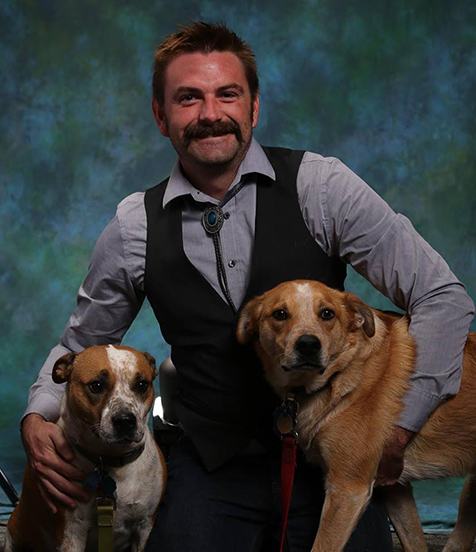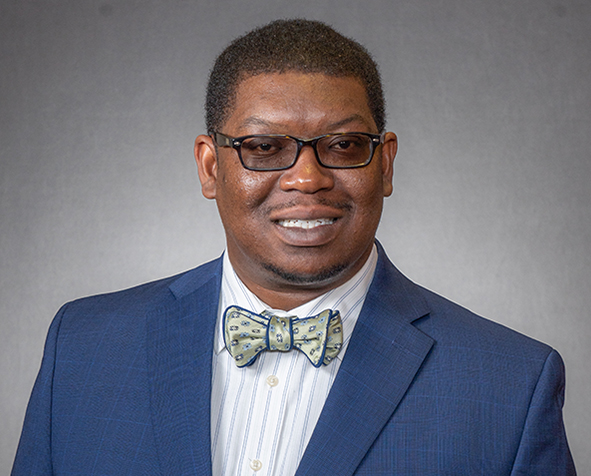From Religious Philosophy to Deputy District Attorney

Jeremiah Jones (MA '14), now a deputy district attorney in Cortez, Colorado, graduated from DU in 2014 with an MA in religious studies. Having pursued multiple career paths and encountered roadblocks along the way, empathy, Jones explains, is what has brought him to where he is now.
At DU, Jones developed an ethos that brought together his academic interests and pragmatic drive toward real-world application. “I wanted to not just think about things, but to take action,” he explains. Jones was driven by an innate sense of social justice and desire to better understand why people make certain choices.
DU’s MA program gave Jones the ability to put these drives into practice. “I got into Native American Studies and ended up writing my thesis on Puritanism and American exceptionalism. While doing this research, I spent a lot of time on the Navajo Reservation.” By immersing himself in the environment he was researching, Jones was able to cultivate new perspectives on himself and his work.
Jones describes his experience at DU as “inquisitive,” emphasizing mentorship from faculty and peers as a means of asking questions and engaging deep discussions that empowered him to continue to cultivate an empathetic point of view.
“I loved my time at DU. I loved reading books, thinking about different concepts and theories, and talking to people who helped me expand my horizons.”
After graduating from DU, Jones wanted to put his study of religious philosophy into practice, but he wasn’t sure how. Once again, he encountered roadblocks, from finding jobs to selling his house and even experiencing a devastating fire that left him with little. It was at this point, that he heard a story on the radio about the constitutional and ethical complications of “botched” death penalty executions.
“How do you get to be the person who thinks about these issues?” Jones asked himself.
Jones decided to begin pursuing a law degree. As a young attorney, he interned for a tribe in North Dakota, living in a barn on the reservation, and pursued studies in Native American Federal Law at the University of Colorado. He graduated from law school in May 2018 and was licensed in October of the same year.
Now, Jones serves as one of Montezuma County’s deputy district attorneys, a position that allows him to put an ethos of empathy into everyday practice. “My role as deputy district attorney puts me on the front lines. The county has entrusted me to figure out why people do what they do and what resources we can give them to help them stop committing crimes,” Jones explains.
“I think most crimes come from either substance abuse or a place of hurt. I’m a firm believer that hurt people are the ones who hurt others; that’s why they’re acting out in this way and they’ve never been given an opportunity to learn how to function in society.”
Jones continues, “We’re all on a journey to ‘make ourselves whole’ but most people don’t even know they’re on that journey, or that they need to go through that process. Sometimes people need to be locked up for the safety of the community and for themselves for a period of time while they figure that out, but jail shouldn’t be the end goal.”
What Jones has come to know is that there are reasons behind everyone’s actions, and seeing through other people’s perspectives is the crux of his work. “I don’t think I would be good at my job as a district attorney without that empathy; it’s invaluable as a human being,” Jones says.
“Studying any of the arts and humanities really helps you put yourself in someone else’s shoes to try to figure out why they did what they did. My whole job is empathy — trying to figure out all sides of the story. And then determining how to make everyone involved, including the defendant, as whole as they can be after a crime has occurred. ”
Though Jones took 10 years to complete his degree, he doesn’t regret his long journey. He reminds students to “have faith that maybe the road isn’t quite as straight as you thought it would be, but you’ll get there eventually.”







